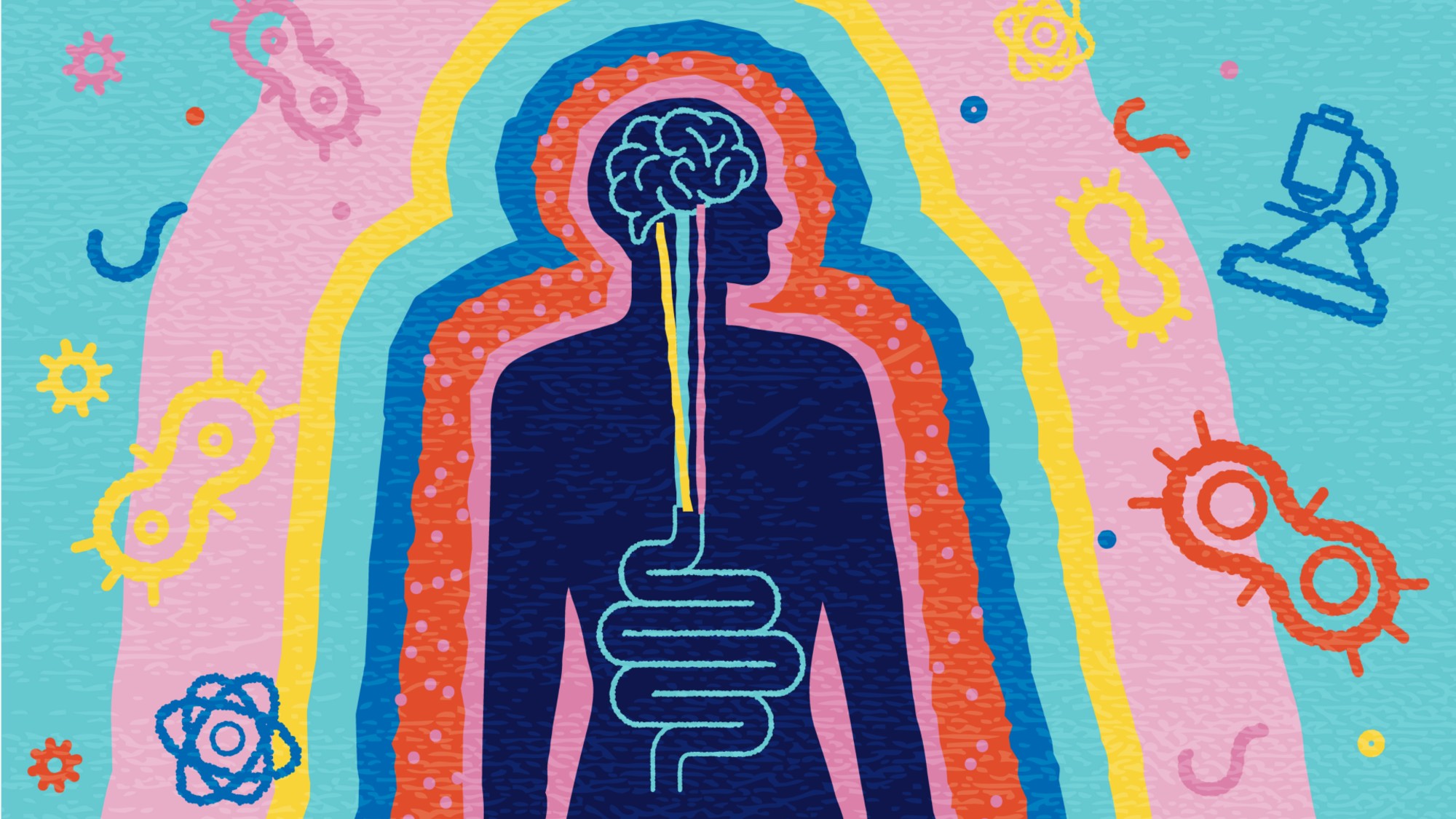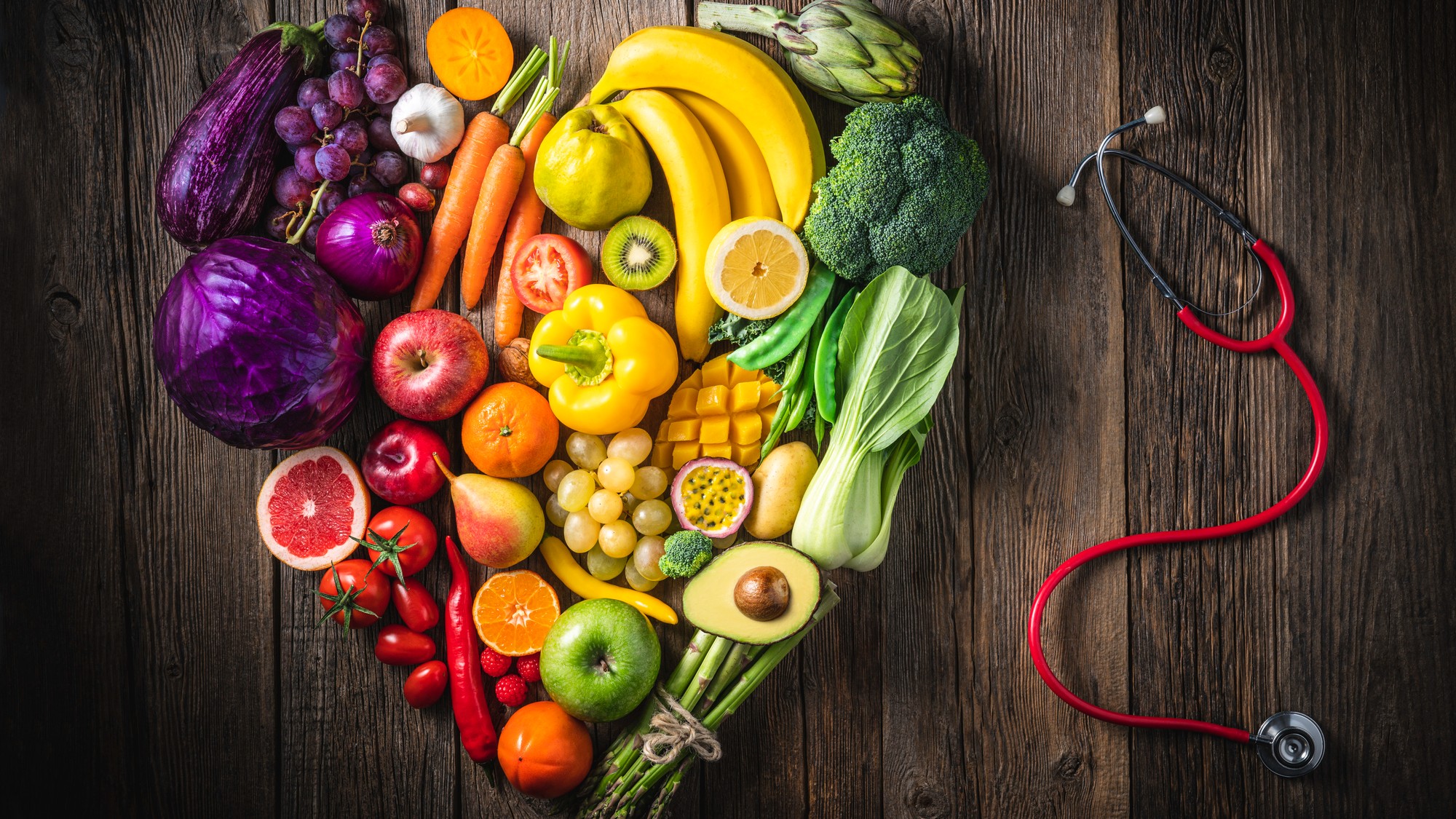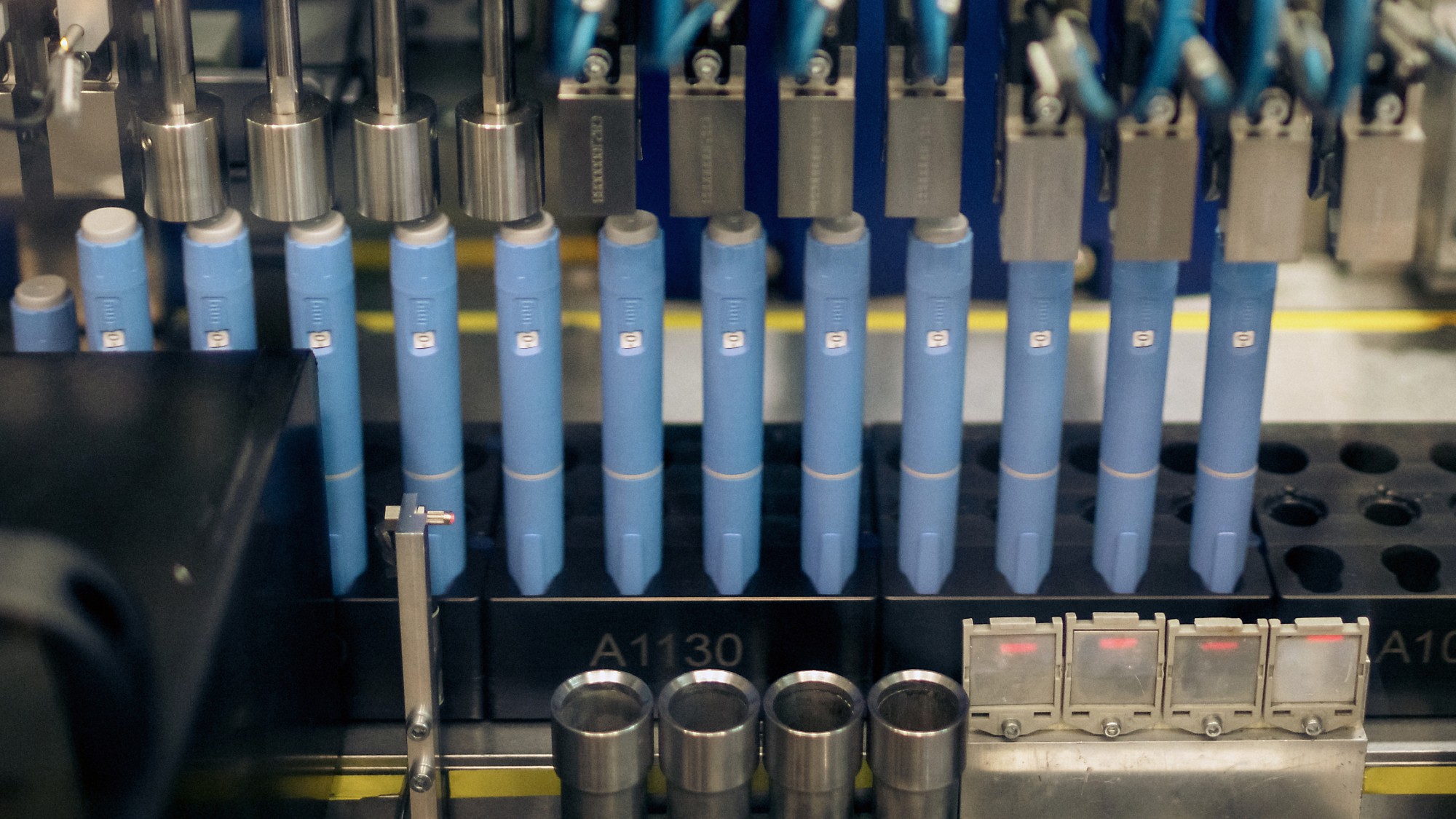A happy gut is a healthy gut. These 5 tips aim to help you achieve that goal.
A healthy gut is all the rage in wellness circles


A free daily email with the biggest news stories of the day – and the best features from TheWeek.com
You are now subscribed
Your newsletter sign-up was successful
The ecosystem of our stomachs, known as the gut microbiome, is a complex and important component of overall health and wellness. Having a healthy gut has become a focus for many, as studies indicate it could be the key to establishing a baseline of wellness that will carry you into old age. There are tons of products and wellness trends aimed at improving the gut flora, but there are also some more simple ways to maintain its health.
Prioritize diversity in your diet
The health of your gut microbiome depends on what you eat, but "you can't necessarily feed the 'good' bacteria while depriving the rest," said Health. There is not a "universal difference between them," Alexandre Almeida, a researcher at the University of Cambridge, said to Health. "Some bacteria may be good in some situations, but then could be harmful in others."
The gut microbiome is a "complex ecosystem with bacteria, viruses, fungi and other microorganisms fulfilling specific niches," Health said. If the balance of species is disrupted, it "affects the health of the ecosystem." So instead of trying to build your diet around promoting or eliminating one specific type of bacteria, it is "best to stick with a diet high in fruits, vegetables, whole grains, poultry and fish, which have been linked to gut microbiome diversity."
The Week
Escape your echo chamber. Get the facts behind the news, plus analysis from multiple perspectives.

Sign up for The Week's Free Newsletters
From our morning news briefing to a weekly Good News Newsletter, get the best of The Week delivered directly to your inbox.
From our morning news briefing to a weekly Good News Newsletter, get the best of The Week delivered directly to your inbox.
Be wary of the probiotic trend
Probiotics have become a buzzword in wellness circles, with products touting their ability to promote gut health. But there's "no strong evidence suggesting that they are really helpful," Almeida said to Health. Studies have instead shown that "probiotics do not usually colonize the intestinal tract of people who take them," so it "raises some questions on what are they actually doing."
Track the medications you are taking
Taking antibiotics "disrupts, at least temporarily, the family of 'good' bacteria thriving in your body," CNET said. Common side effects of taking the drugs include "nausea, diarrhea and developing yeast infections." If you have to take antibiotics often because of recurring infections, "ask your doctor about what you can do to help minimize the disruption to your microbiome."
Other medications that can disrupt our microbiomes include those that change the pH of the stomach and remove acid, Cleveland Clinic microbiome expert Gail Cresci said to CNET. These may include "proton pump inhibitors, aka PPIs, and histamine H2-receptor antagonists, or H2 blockers," which are used to reduce acid reflux symptoms, the outlet said.
Prioritize exercise and sleep
Exercising regularly can help in multiple ways, including "by improving your circulation, helping your metabolism and aiding your digestive muscles," CNET said. If getting to the gym is intimidating, there are "small ways you can get your body in the habit of moving every day or at least more frequently."
A free daily email with the biggest news stories of the day – and the best features from TheWeek.com
Maintaining a good sleep schedule is also essential for the health of our guts. The microbiome adheres to the circadian rhythm, so if we eat when our gut microbiome is unprepared, our bodies won't be primed to process nutrients, Cresci said. A lack of sleep can trigger an increase in stress and cortisol levels, which may also have negative implications for gut health. "There's a lot going on with the gut-brain interaction, so that signals back to the microbiome, and vice versa," Cresci added. If you are "sleepy, tired, exhausted, you tend not to do the things we know are good for microbiomes. It kind of perpetuates itself."
Limit or eliminate alcohol intake
Alcohol is a known gut irritant, so cutting back or eliminating alcohol intake can help fix your gut health, Amy Burkhart, an integrative medicine physician and gut health expert, said to Women's Health. The best way to verify that is to check in with yourself: "Are you having GI issues, joint or muscle pain, problems sleeping, energy dips or mood problems after drinking alcohol?" This also might be an opportunity try mocktails. Many mocktails "contain adaptogens that will lower stress, a common reason people reach for a glass."
Theara Coleman has worked as a staff writer at The Week since September 2022. She frequently writes about technology, education, literature and general news. She was previously a contributing writer and assistant editor at Honeysuckle Magazine, where she covered racial politics and cannabis industry news.
-
 The Olympic timekeepers keeping the Games on track
The Olympic timekeepers keeping the Games on trackUnder the Radar Swiss watchmaking giant Omega has been at the finish line of every Olympic Games for nearly 100 years
-
 Will increasing tensions with Iran boil over into war?
Will increasing tensions with Iran boil over into war?Today’s Big Question President Donald Trump has recently been threatening the country
-
 Corruption: The spy sheikh and the president
Corruption: The spy sheikh and the presidentFeature Trump is at the center of another scandal
-
 The truth about vitamin supplements
The truth about vitamin supplementsThe Explainer UK industry worth £559 million but scientific evidence of health benefits is ‘complicated’
-
 Stopping GLP-1s raises complicated questions for pregnancy
Stopping GLP-1s raises complicated questions for pregnancyThe Explainer Stopping the medication could be risky during pregnancy, but there is more to the story to be uncovered
-
 The plant-based portfolio diet invests in your heart’s health
The plant-based portfolio diet invests in your heart’s healthThe Explainer Its guidelines are flexible and vegan-friendly
-
 Tips for surviving loneliness during the holiday season — with or without people
Tips for surviving loneliness during the holiday season — with or without peoplethe week recommends Solitude is different from loneliness
-
 More women are using more testosterone despite limited research
More women are using more testosterone despite limited researchThe explainer There is no FDA-approved testosterone product for women
-
 Tips for seizing control of your digital well-being
Tips for seizing control of your digital well-beingThe Week Recommends A handy mix of technology and self-motivation
-
 Climate change is getting under our skin
Climate change is getting under our skinUnder the radar Skin conditions are worsening because of warming temperatures
-
 The battle of the weight-loss drugs
The battle of the weight-loss drugsTalking Point Can Novo Nordisk and Eli Lilly regain their former stock market glory? A lot is riding on next year's pills
